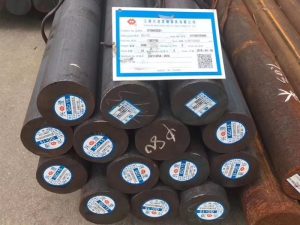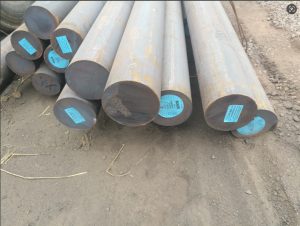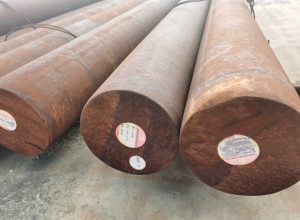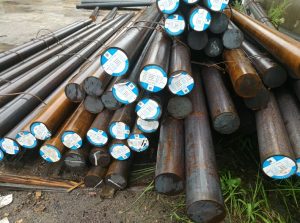When selecting bearings for industrial applications, the core material plays a decisive role in determining performance, longevity, and cost-effectiveness. High-quality bearing steels like GCr15, GCr15SiMn, GCr18Mo, and G20Cr2Ni4A are engineered to meet the demanding requirements of modern machinery. Understanding their properties helps buyers make informed decisions—whether for general industrial use or specialized high-performance applications.
Why Bearing Steel Matters
Bearing steel must withstand extreme pressures, friction, and fatigue while maintaining dimensional stability. The right material ensures:
✔ Higher load capacity – Resists deformation under stress
✔ Enhanced wear resistance – Extends service life
✔ Improved fatigue strength – Reduces failure risks
✔ Better corrosion resistance – Ideal for harsh environments
Below, we break down the key bearing steel grades and their best applications.
1. GCr15 Bearing Steel – The Industry Standard


Key Properties:
- Hardness: 61-65 HRC
- Composition: 1% Carbon, 1.5% Chromium
- Advantages: Excellent hardenability, wear resistance, and cost-efficiency
Best For: General-purpose bearings in motors, pumps, and industrial gearboxes.
GCr15 is the most widely used bearing steel due to its balanced performance and affordability. It provides reliable hardness and durability for standard mechanical equipment without excessive cost.
2. GCr15SiMn – Enhanced Strength for Heavy-Duty Use
Key Properties:
- Hardness: 60-64 HRC
- Composition: Adds Silicon (Si) and Manganese (Mn) for improved toughness
- Advantages: Higher hardenability, better impact resistance
Best For: Heavy machinery, mining equipment, and large rolling mill bearings.
As an upgraded version of GCr15, GCr15SiMn offers superior strength and fatigue resistance, making it ideal for applications with high dynamic loads.
3. GCr18Mo – Premium Performance for High-Speed & High-Load Applications
Key Properties:
- Hardness: 62-66 HRC
- Composition: Higher Chromium (Cr) + Molybdenum (Mo) for stability
- Advantages: Exceptional fatigue life, dimensional stability, and heat resistance
Best For: Aerospace bearings, precision machine tools, and high-speed spindles.
GCr18Mo is a premium-grade bearing steel with excellent wear resistance and thermal stability, ensuring reliable performance in extreme conditions.
4. G20Cr2Ni4A – Case-Hardened Alloy for Extreme Conditions

Key Properties:
- Surface Hardness: 58-62 HRC
- Core Toughness: High ductility for shock absorption
- Composition: Nickel (Ni) for enhanced corrosion resistance
- Advantages: Hard surface + tough core, ideal for variable loads
Best For: Wind turbine bearings, heavy-duty gearboxes, and military applications.
This carburized alloy steel is engineered for applications requiring both surface hardness and core toughness, making it perfect for high-stress, high-impact environments.
How to Choose the Right Bearing Steel?
| Steel Grade | Best For | Key Benefit |
|---|---|---|
| GCr15 | General machinery | Cost-effective, reliable hardness |
| GCr15SiMn | Heavy machinery | Improved toughness & load capacity |
| GCr18Mo | High-speed applications | Superior fatigue & heat resistance |
| G20Cr2Ni4A | Extreme conditions | Hard surface + tough core |
Final Thoughts
Selecting the right bearing steel ensures optimal performance, reduced downtime, and long-term cost savings. Whether you need standard industrial bearings (GCr15) or ultra-durable solutions (G20Cr2Ni4A), understanding material properties helps in making the best investment.